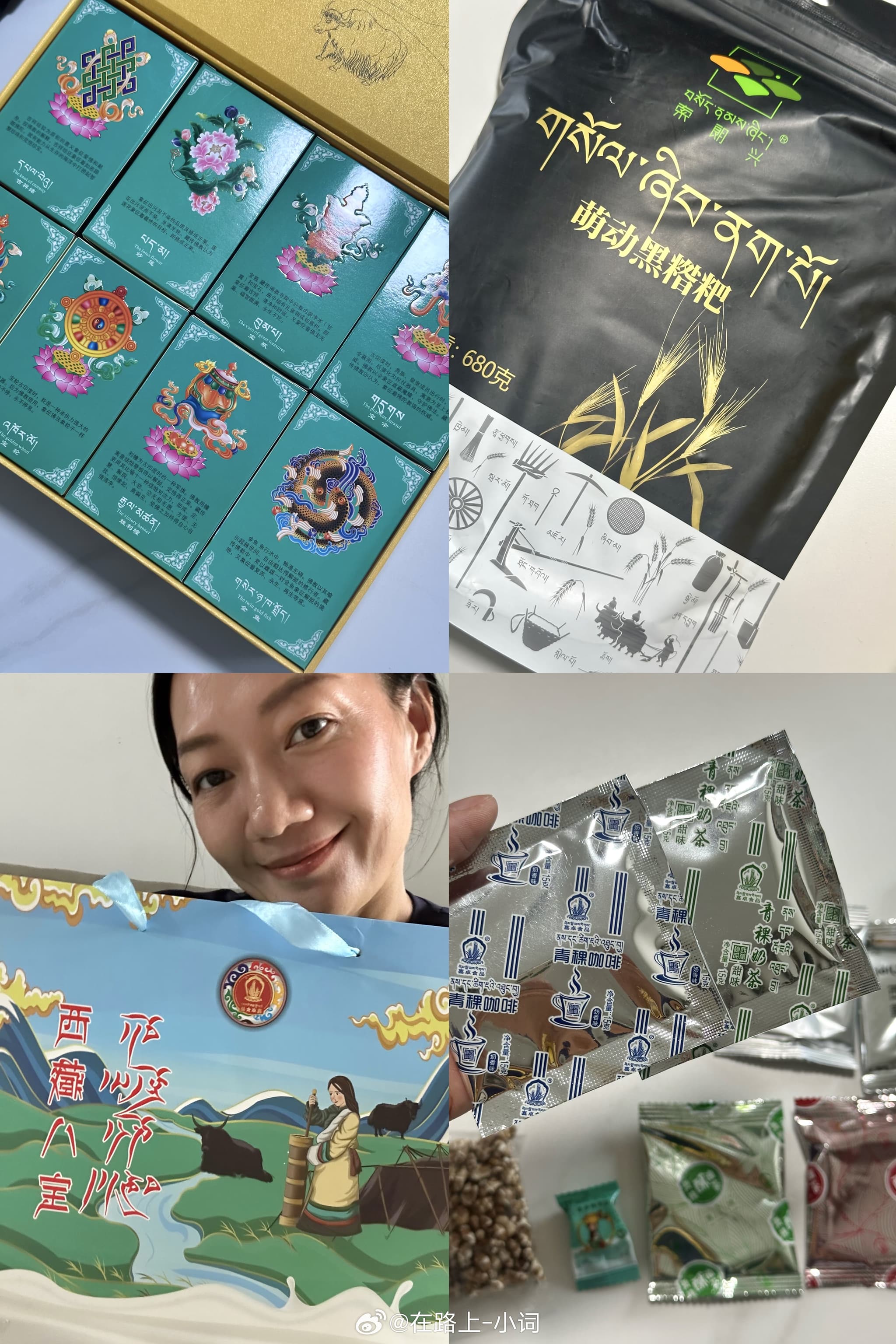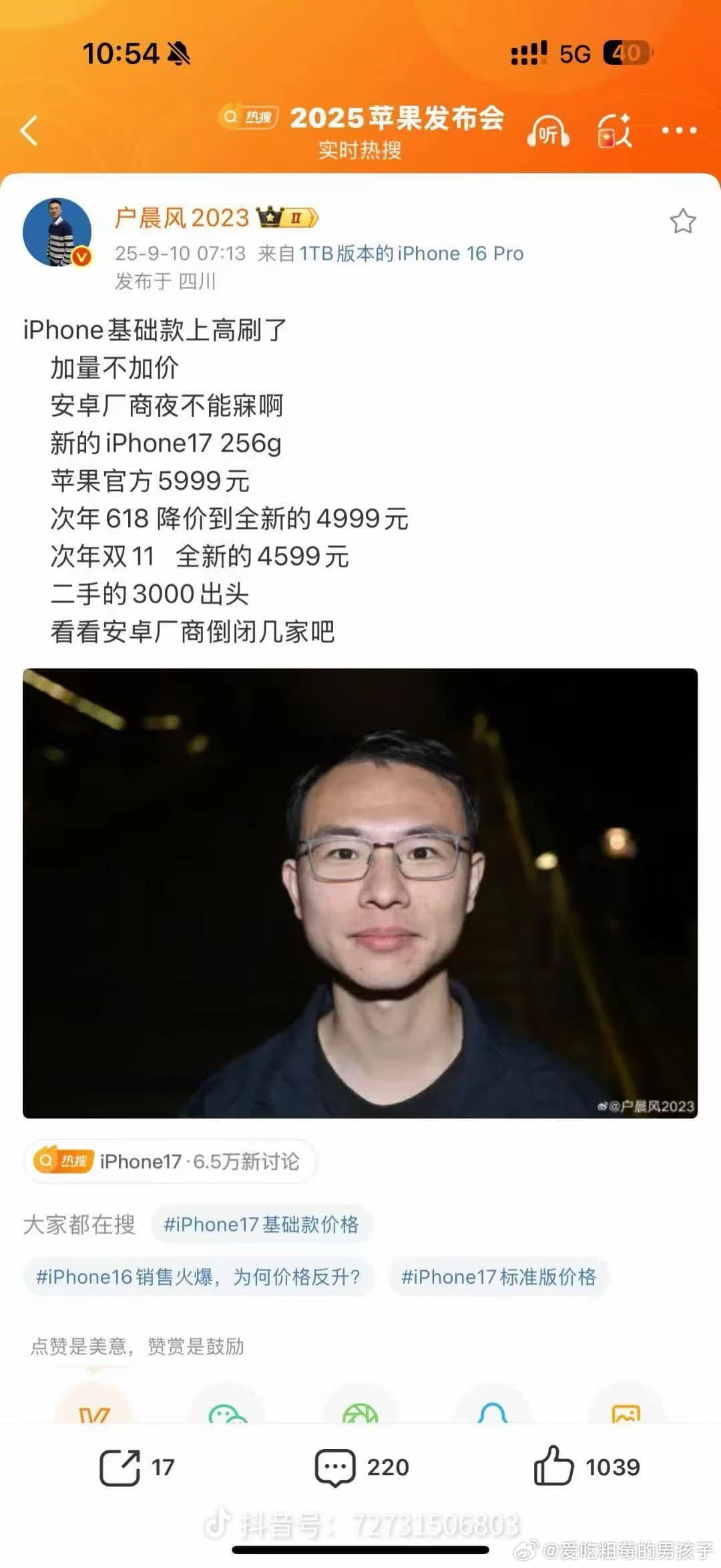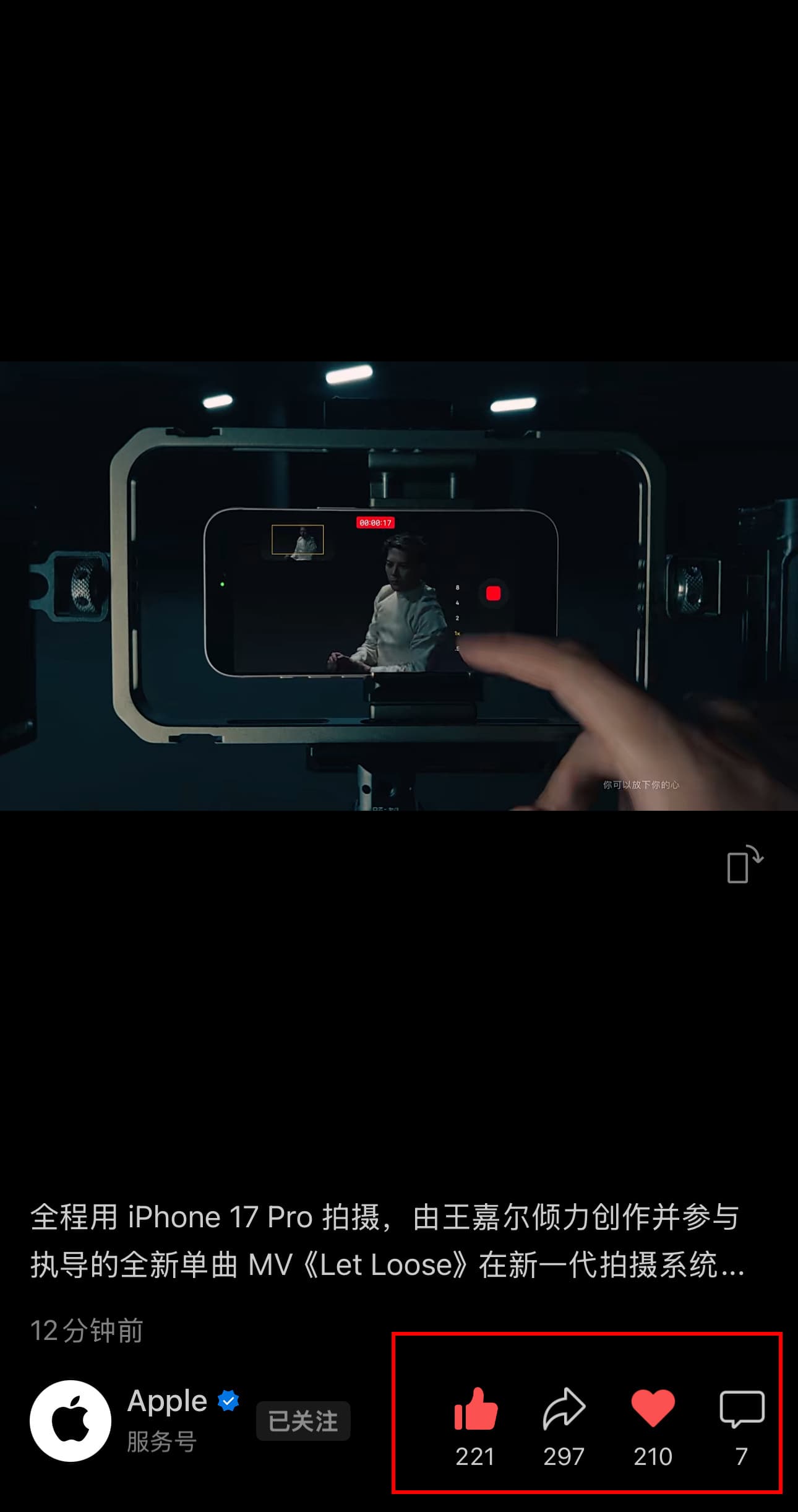Chinese Video Game 'Black Myth: Wukong' Sparks Cultural Pride and Diplomatic Debate
The Chinese video game "Black Myth: Wukong" has taken the gaming world by storm, and its impact has reached all the way to the Chinese Ministry of Foreign Affairs. At a regular press conference on August 21, spokesperson Mao Ning was asked about the game by a Reuters reporter. The reporter noted that the game has left a deep impression on players with its Chinese cultural characteristics and asked if the Ministry of Foreign Affairs views the game as a "cultural ambassador" for China.
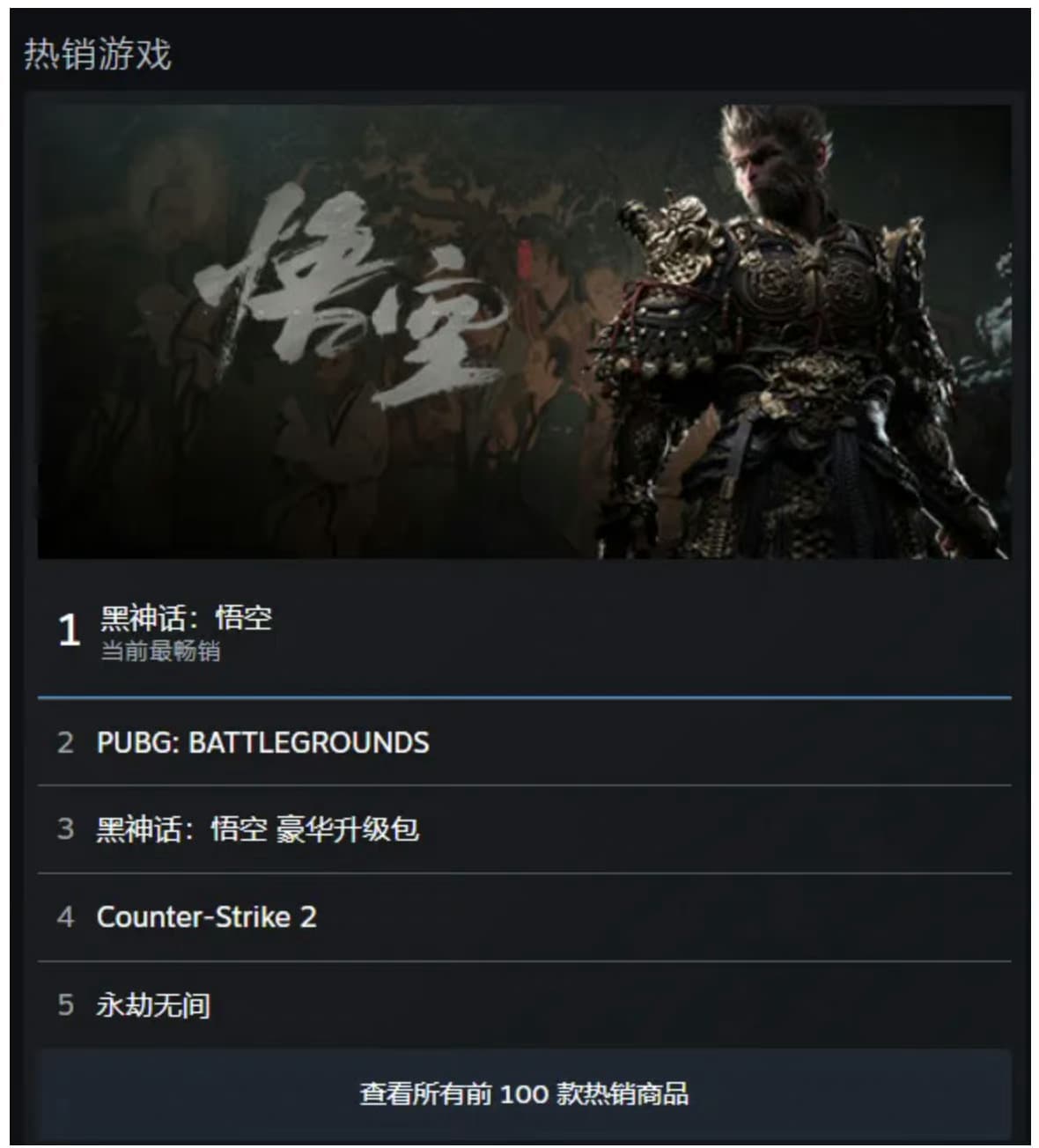
21 August 2024
Mao Ning responded by thanking the reporter for bringing up the game, stating that the game is based on the classic Chinese novel "Journey to the West." He added that this reflects the attractiveness of Chinese culture.
The game's success has sparked widespread discussion on Chinese social media platform Weibo. Many users praised the game's ability to showcase Chinese culture to the world. One user commented, "This kind of cultural export is great! Let them experience the thrill of playing a game with Chinese subtitles!" Another user suggested that the game's developer should create games based on other classic Chinese novels, such as "Dream of the Red Chamber," to allow players to experience the culture in different ways.
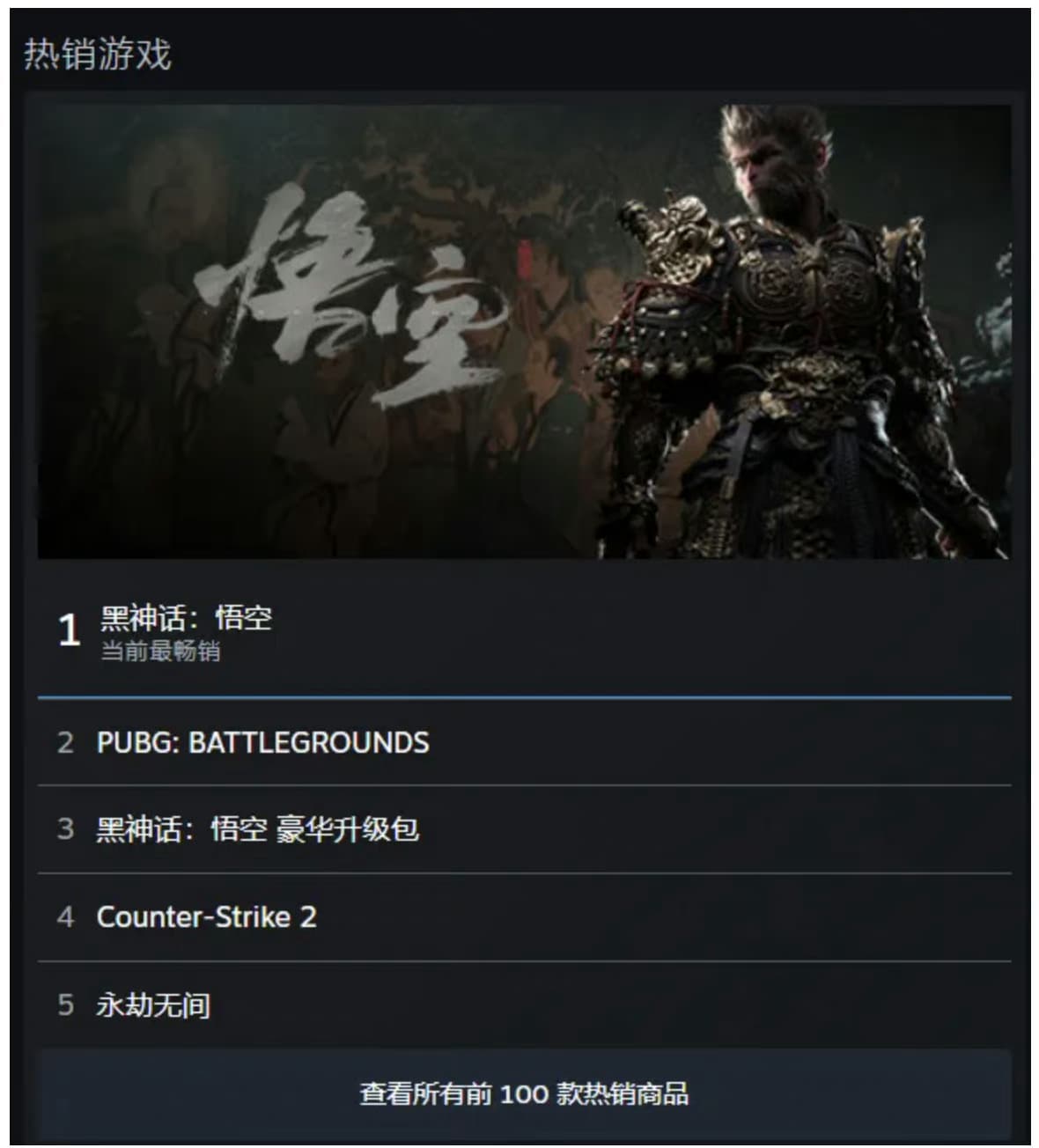
However, not all comments were positive. Some users questioned the Ministry of Foreign Affairs' involvement in the game, with one user asking, "What does this have to do with foreign affairs?" Another user pointed out that the game's developer had previously been involved in a controversy and that the Ministry's response was not necessarily an endorsement of the game.
Despite the controversy, many users expressed their pride in the game's ability to showcase Chinese culture to the world. One user commented, "Although my computer can't run the game, I'm still proud that it was made by Chinese developers. The game's graphics and gameplay are top-notch, and it's a great way to share Chinese culture with the world."
The game's success has also sparked discussion about the potential for Chinese cultural exports to improve China's international relations. One user commented, "I hope that this game can help increase China's cultural influence abroad and stimulate the development of other industries, such as chip manufacturing and animation."
However, not all users were optimistic about the game's impact. One user pointed out that the game's success was not necessarily a reflection of China's cultural influence, but rather a result of the game's high quality. The user commented, "Just because the game is based on a Chinese classic doesn't mean that it's a cultural ambassador for China. It's just a good game that happens to be based on Chinese culture."
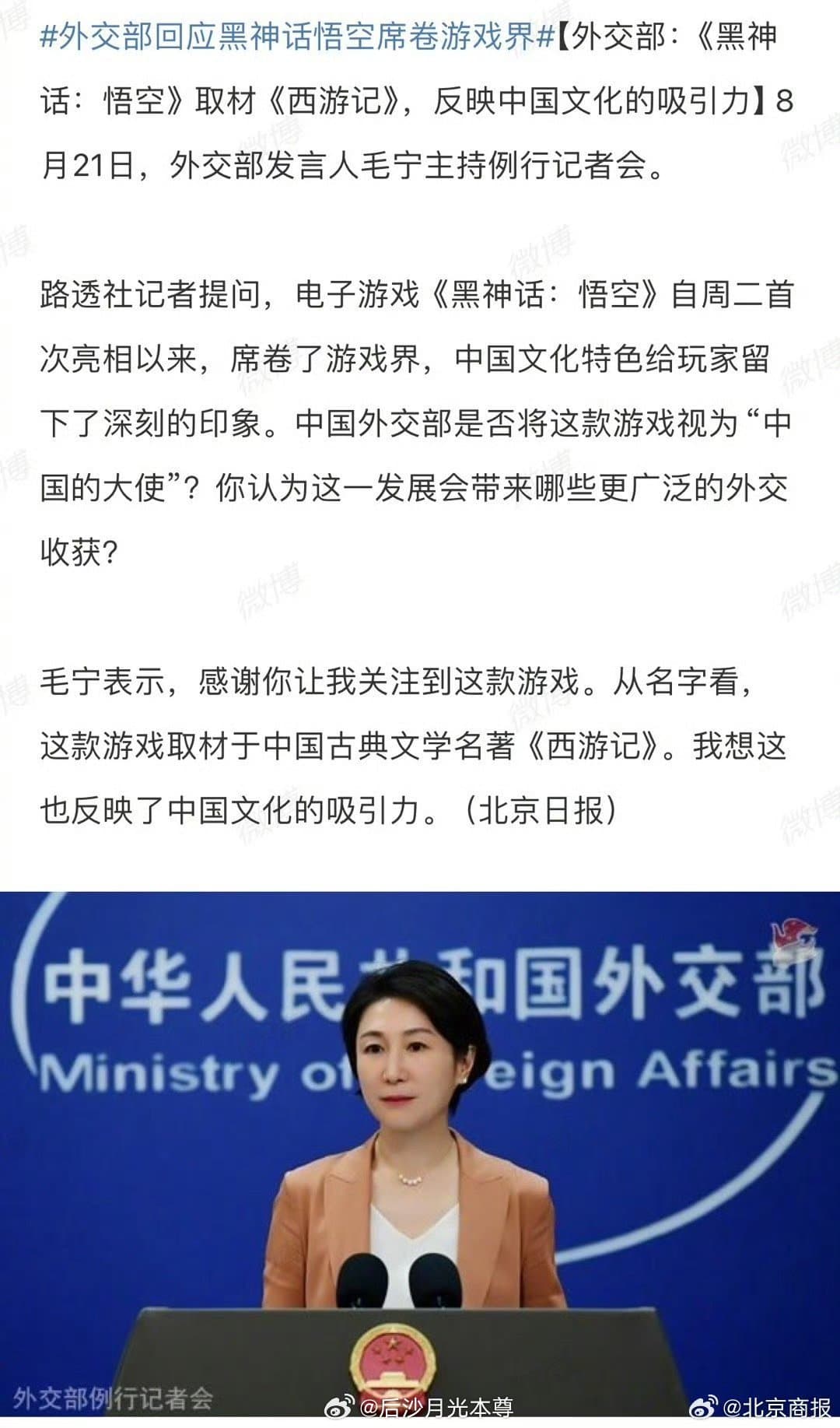
The game's developer has also responded to the controversy, releasing a statement that the game is not intended to be a cultural ambassador for China, but rather a way to share Chinese culture with the world. The statement read, "We hope that our game can help players experience the richness and depth of Chinese culture, and we are proud to be able to share this culture with the world."
Overall, the success of "Black Myth: Wukong" has sparked a wide-ranging discussion about the potential for Chinese cultural exports to improve China's international relations and showcase Chinese culture to the world. While some users have praised the game's ability to promote Chinese culture, others have questioned the Ministry of Foreign Affairs' involvement and the game's potential impact. As the game continues to attract attention from around the world, it is likely that the discussion will continue.

